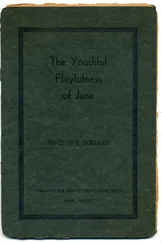Anonymous
Collection of Verses; Being One of the Canonical Books of the Buddhists
Translator: F. Max Muller
e-artnow, 2020
Contact: info@e-artnow.org
EAN: 4064066399740
Chapter I. The Twin-Verses
Chapter II. On Earnestness
Chapter III. Thought
Chapter IV. Flowers
Chapter V. The Fool
Chapter VI. The Wise Man (Pandita)
Chapter VII. The Venerable (Arhat).
Chapter VIII. The Thousands
Chapter IX. Evil
Chapter X. Punishment
Chapter XI. Old Age
Chapter XII. Self
Chapter XIII. The World
Chapter XIV. The Buddha (The Awakened)
Chapter XV. Happiness
Chapter XVI. Pleasure
Chapter XVII. Anger
Chapter XVIII. Impurity
Chapter XIX. The Just
Chapter XX. The Way
Chapter XXI. Miscellaneous
Chapter XXII. The Downward Course
Chapter XXIII. The Elephant
Chapter XXIV. Thirst
Chapter XXV. The Bhikshu (Mendicant)
Chapter XXVI. The Brahmana (Arhat)
Chapter I.
The Twin-Verses
Table of Contents
1. All that we are is the result of what we have thought: it is founded on our thoughts, it is made up of our thoughts. If a man speaks or acts with an evil thought, pain follows him, as the wheel follows the foot of the ox that draws the carriage.
2. All that we are is the result of what we have thought: it is founded on our thoughts, it is made up of our thoughts. If a man speaks or acts with a pure thought, happiness follows him, like a shadow that never leaves him.
3. "He abused me, he beat me, he defeated me, he robbed me,"—in those who harbour such thoughts hatred will never cease.
4. "He abused me, he beat me, he defeated me, he robbed me,"—in those who do not harbour such thoughts hatred will cease.
5. For hatred does not cease by hatred at any time: hatred ceases by love, this is an old rule.
6. The world does not know that we must all come to an end here;—but those who know it, their quarrels cease at once.
7. He who lives looking for pleasures only, his senses uncontrolled, immoderate in his food, idle, and weak, Mara (the tempter) will certainly overthrow him, as the wind throws down a weak tree.
8. He who lives without looking for pleasures, his senses well controlled, moderate in his food, faithful and strong, him Mara will certainly not overthrow, any more than the wind throws down a rocky mountain.
9. He who wishes to put on the yellow dress without having cleansed himself from sin, who disregards temperance and truth, is unworthy of the yellow dress.
10. But he who has cleansed himself from sin, is well grounded in all virtues, and regards also temperance and truth, he is indeed worthy of the yellow dress.
11. They who imagine truth in untruth, and see untruth in truth, never arrive at truth, but follow vain desires.
12. They who know truth in truth, and untruth in untruth, arrive at truth, and follow true desires.
13. As rain breaks through an ill-thatched house, passion will break through an unreflecting mind.
14. As rain does not break through a well-thatched house, passion will not break through a well-reflecting mind.
15. The evil-doer mourns in this world, and he mourns in the next; he mourns in both. He mourns and suffers when he sees the evil of his own work.
16. The virtuous man delights in this world, and he delights in the next; he delights in both. He delights and rejoices, when he sees the purity of his own work.
17. The evil-doer suffers in this world, and he suffers in the next; he suffers in both. He suffers when he thinks of the evil he has done; he suffers more when going on the evil path.
18. The virtuous man is happy in this world, and he is happy in the next; he is happy in both. He is happy when he thinks of the good he has done; he is still more happy when going on the good path.
19. The thoughtless man, even if he can recite a large portion (of the law), but is not a doer of it, has no share in the priesthood, but is like a cowherd counting the cows of others.
20. The follower of the law, even if he can recite only a small portion (of the law), but, having forsaken passion and hatred and foolishness, possesses true knowledge and serenity of mind, he, caring for nothing in this world or that to come, has indeed a share in the priesthood.
Chapter II.
On Earnestness
Table of Contents
21. Earnestness is the path of immortality (Nirvana), thoughtlessness the path of death. Those who are in earnest do not die, those who are thoughtless are as if dead already.
22. Those who are advanced in earnestness, having understood this clearly, delight in earnestness, and rejoice in the knowledge of the Ariyas (the elect).
23. These wise people, meditative, steady, always possessed of strong powers, attain to Nirvana, the highest happiness.
24. If an earnest person has roused himself, if he is not forgetful, if his deeds are pure, if he acts with consideration, if he restrains himself, and lives according to law—then his glory will increase.
25. By rousing himself, by earnestness, by restraint and control, the wise man may make for himself an island which no flood can overwhelm.
26. Fools follow after vanity, men of evil wisdom. The wise man keeps earnestness as his best jewel.
27. Follow not after vanity, nor after the enjoyment of love and lust! He who is earnest and meditative, obtains ample joy.
28. When the learned man drives away vanity by earnestness, he, the wise, climbing the terraced heights of wisdom, looks down upon the fools, serene he looks upon the toiling crowd, as one that stands on a mountain looks down upon them that stand upon the plain.
29. Earnest among the thoughtless, awake among the sleepers, the wise man advances like a racer, leaving behind the hack.
30. By earnestness did Maghavan (Indra) rise to the lordship of the gods. People praise earnestness; thoughtlessness is always blamed.
31. A Bhikshu (mendicant) who delights in earnestness, who looks with fear on thoughtlessness, moves about like fire, burning all his fetters, small or large.
32. A Bhikshu (mendicant) who delights in reflection, who looks with fear on thoughtlessness, cannot fall away (from his perfect state)—he is close upon Nirvana.
Table of Contents
33. As a fletcher makes straight his arrow, a wise man makes straight his trembling and unsteady thought, which is difficult to guard, difficult to hold back.
34. As a fish taken from his watery home and thrown on dry ground, our thought trembles all over in order to escape the dominion of Mara (the tempter).
35. It is good to tame the mind, which is difficult to hold in and flighty, rushing wherever it listeth; a tamed mind brings happiness.
36. Let the wise man guard his thoughts, for they are difficult to perceive, very artful, and they rush wherever they list: thoughts well guarded bring happiness.
37. Those who bridle their mind which travels far, moves about alone, is without a body, and hides in the chamber (of the heart), will be free from the bonds of Mara (the tempter).
38. If a man's thoughts are unsteady, if he does not know the true law, if his peace of mind is troubled, his knowledge will never be perfect.
39. If a man's thoughts are not dissipated, if his mind is not perplexed, if he has ceased to think of good or evil, then there is no fear for him while he is watchful.
40. Knowing that this body is (fragile) like a jar, and making this thought firm like a fortress, one should attack Mara (the tempter) with the weapon of knowledge, one should watch him when conquered, and should never rest.
Читать дальше











